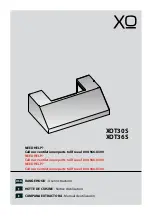
Safety Instructions
Operating Instructions
Care and Cleaning
Installation Instructions
Troubleshooting T
ips
Customer Service
15
Read these instructions completely and carefully.
Electrical Connection
We recommend that you have the electrical hookup of your
range done by a qualified electrician. Have the electrician
show you where your range disconnect is located.
Call your Electric Company and ask which codes
apply in your area. If there are no codes, you must
follow the NATIONAL ELECTRICAL CODE,
ANSI/NFPA NO. 70, latest edition. You can get a
copy by writing:
National Fire Protection Association
Batterymarch Park
Quincy, MA 02269
If you fail to wire your range in accordance with
governing codes, you may create a hazardous
condition.
You must use a three-wire, single-phase AC
208/240 Volt, 60 Hertz electrical system to
operate your range.
Use #8 wire and 40 Amp fuse or circuit breaker
for 240 Volt and 208 Volt systems.
Do not use aluminum wiring to connect your
range to the household circuit.
Hard Wiring
The power cord bracket also incorporates a 7/8
″
diameter opening for hard wiring (armored
cable, flexible conduit, romex wire, etc.).
If this type of wire is used, remove the strain relief
clamp and bracket and reposition the bracket so
the 7/8
″
diameter hole is at the bottom to accept
the hard wiring.
To Make Electrical Connection
Remove the junction block access cover
(on range back).
Effective January 1, 1996 the National
Electrical Code requires that new construction
(not existing) utilize a 4-conductor connection
to an electric range.
Use only 3-conductor or 4-conductor U.L. listed
range cord. You must use the strain relief clamp
provided with the range to hold the cord.
Use a range cord rated at
40 amps
with 125/250
minimum volt range and closed loop terminals.
Care should be taken to center cable and strain
relief within knockout hole to keep the edge from
damaging the cable.
NOTE:
A 4-conductor cord is to be used when the
appliance is installed in a mobile home or when
local codes do not permit grounding through the
neutral.










































